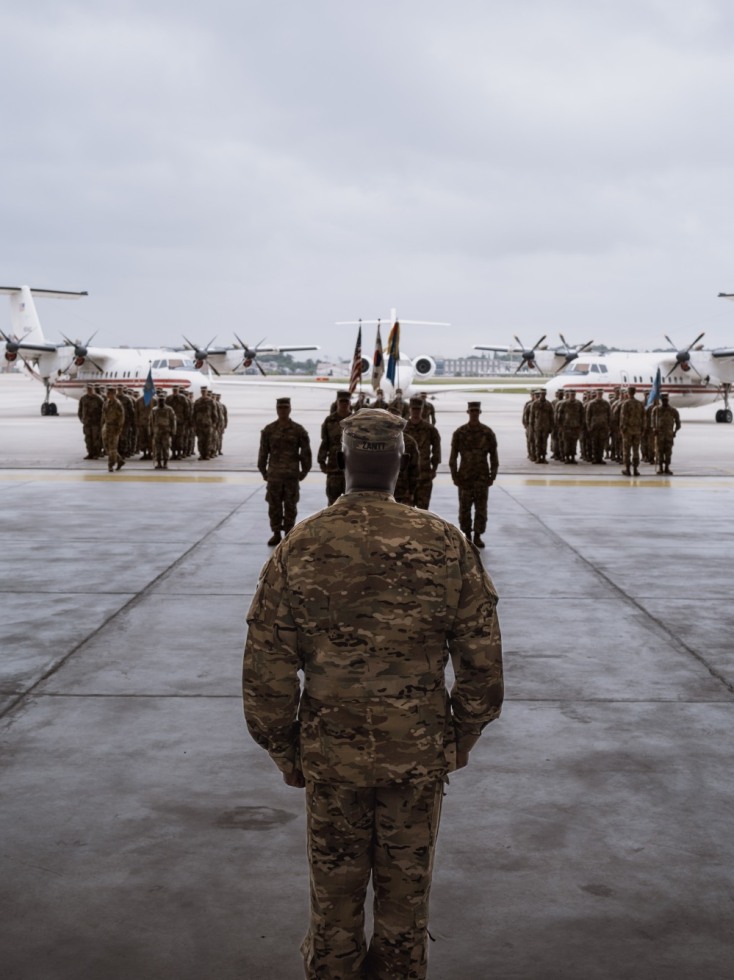Derrick Zantt, a 2016 graduate of Brown's Master of Public Affairs (MPA) program, grew up in the '90s in a Baltimore suburb consuming an action-packed diet of aeronautical movies and television. "I loved all things aviation. It sounds corny, but these shows, particularly "Airwolf," really motivated me. I couldn't think of anything cooler than doing that," recalled Zantt.
In 1998, Zantt fulfilled his dream of flying when he joined the U.S. Army, continuing a family history of military service that dates as far back as WWI. As a fourth-generation service member, Zantt's military career began in Asia. He completed a combat tour in Iraq, then served as an Army captain at Afghanistan's Bagram Airfield. In 2011, he obtained his bachelor's degree in aeronautics from Embry-Riddle Aeronautical University.
In 2015, Zantt decided to pursue a master's in public policy to advance his career within the military. "Upon completion of my key development time as a commander in Afghanistan, I wanted to learn to influence processes better, to better help people, and to make a lasting change with agency and public policy," he said. "Public affairs was the vehicle I wanted to pursue for mastery in grad school."
Zantt applied to several top graduate programs and received acceptance letters to all of them, but chose to further his studies at the Watson Institute for International and Public Affairs because of the support he received from the Brown community. "It was like a family," Zantt said. He viewed Brown's MPA program as a close-knit community with a strong network of people dedicated to positive change through public policy. "I wanted to be a part of that," said Zantt. "It was a space I hadn't been in before. Particularly that rigorous academic environment with people who really want to make a difference."
